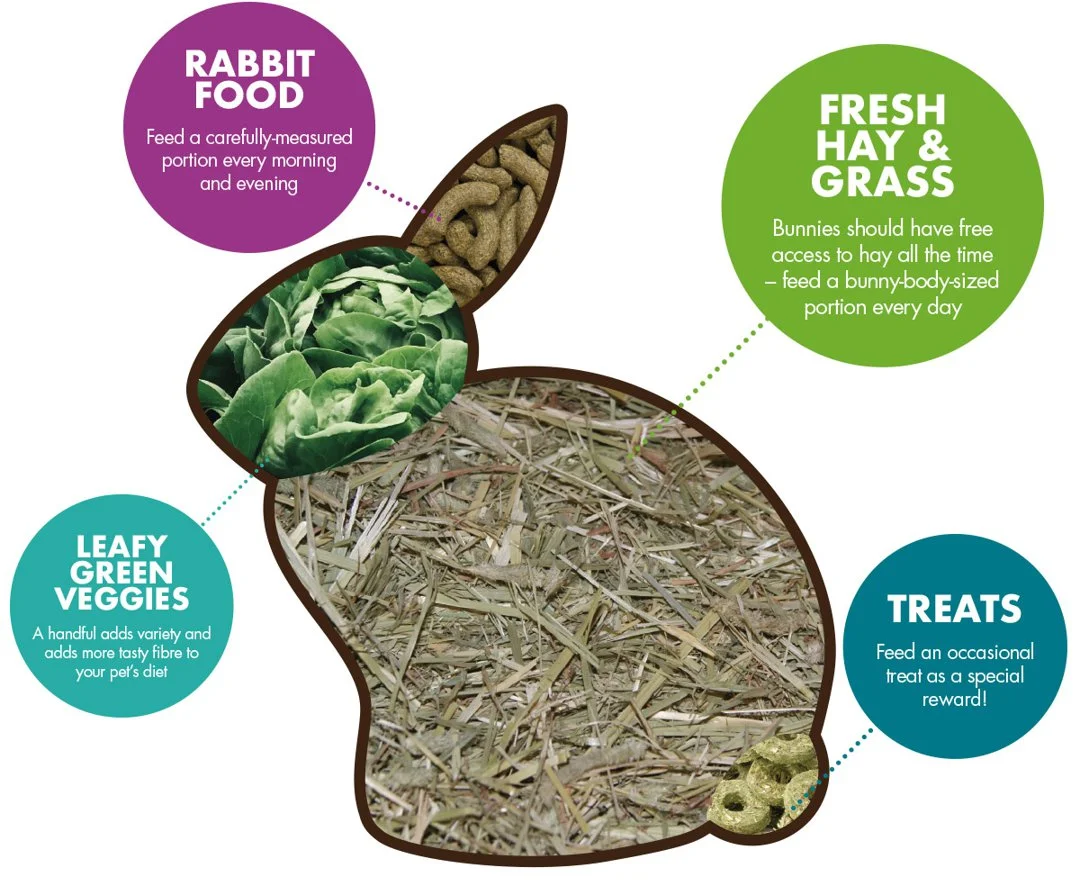Healthy Foods for Rabbits: A Guide to a Balanced Diet

Rabbits are charming and affectionate pets that require a well-balanced diet to thrive. Providing the right foods not only keeps them healthy but also supports their natural behaviors and digestive health. Here’s a comprehensive guide to healthy foods for your rabbit, ensuring they receive the essential nutrients they need.
1. Hay: The Staple of a Rabbit’s Diet
Types of Hay
- Timothy Hay: This is the most commonly recommended hay for rabbits. It’s high in fiber, which is crucial for healthy digestion and dental health.
- Orchard Grass Hay: Another excellent choice, it’s softer and sweeter than Timothy hay, making it appealing to many rabbits.
- Meadow Hay: A mixture of grasses and plants, it can add variety to your rabbit’s diet.
- Alfalfa Hay: This hay is higher in protein and calcium and is best for young rabbits or those needing extra nutrition, but it should be fed sparingly to adult rabbits due to its richness.
2. Fresh Vegetables
Leafy Greens
- Kale: A nutritious green that rabbits enjoy.
- Romaine Lettuce: Offers hydration and vitamins but should not be the only green provided.
- Cilantro and Parsley: Fresh herbs can add flavor and nutrients to your rabbit’s diet.
Other Vegetables
- Carrots: These should be given in moderation as treats, as they are high in sugar.
- Bell Peppers: A great source of vitamins, particularly vitamin C.
- Broccoli: A healthy option, but some rabbits may find it gassy, so offer in small amounts.
3. Fruits (In Moderation)
Safe Fruits
- Apples: Remove the seeds and core; offer small slices as a treat.
- Berries: Strawberries, blueberries, and raspberries are excellent choices.
- Bananas: These are high in sugar, so limit to small pieces occasionally.
4. Pellets
Quality Pellets
- Rabbit Pellets: Choose high-fiber pellets made from Timothy hay or other grass hays. Pellets should make up a small portion of their diet (about 1/4 cup per 5 pounds of body weight daily).
- Avoid Seed-based Mixes: These often contain seeds and nuts that can lead to obesity and health problems.
5. Treats and Snacks
Healthy Treats
- Dried Herbs: Small amounts of dried herbs like chamomile or basil can be offered.
- Commercial Treats: Look for high-quality treats made specifically for rabbits, avoiding those high in sugar or fat.
Feeding Tips for Rabbits
- Fresh Water: Always provide fresh, clean water daily in a water bottle or heavy dish to prevent spills.
- Introduce New Foods Slowly: When adding new vegetables or fruits, do so gradually to prevent digestive upset.
- Portion Control: Monitor your rabbit’s food intake to prevent obesity. Offer a variety of foods while keeping hay as the main component.
- Avoid Harmful Foods: Certain foods are toxic to rabbits, including:
- Iceberg lettuce
- Potatoes
- Onions
- Garlic
- Chocolate
- Avocado
Conclusion
A healthy diet is essential for your rabbit’s well-being and happiness. By providing a balanced mix of hay, fresh vegetables, fruits, and pellets, you can ensure your furry friend enjoys a long, healthy life. Always consult with your veterinarian for specific dietary recommendations based on your rabbit’s age, size, and health needs.



